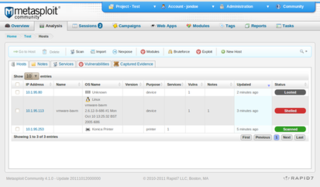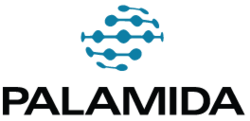
Novell, Inc. was an American software and services company headquartered in Provo, Utah, that existed from 1980 until 2014. Its most significant product was the multi-platform network operating system known as Novell NetWare.

Caldera International, Inc., earlier Caldera Systems, was an American software company that existed from 1998 to 2002 and developed and sold Linux- and Unix-based operating system products.
Vonage Holdings Corp. is an American cloud communications provider operating as a subsidiary of Ericsson. Headquartered in Holmdel Township, New Jersey, the organization was founded in 1998 as Min-X as a provider of residential telecommunications services based on voice over Internet Protocol (VoIP). In 2001, the organization changed its name to Vonage.
Wind River Systems, Inc., also known as Wind River, is an Alameda, California–based company, subsidiary of Aptiv PLC. The company develops embedded system and cloud software consisting of real-time operating systems software, industry-specific software, simulation technology, development tools and middleware.

On2 Technologies, formerly known as The Duck Corporation, was a small publicly traded company, founded in New York City in 1992 and headquartered in Clifton Park, New York, that designed video codec technology. It created a series of video codecs called TrueMotion.

The Metasploit Project is a computer security project that provides information about security vulnerabilities and aids in penetration testing and IDS signature development. It is owned by Boston, Massachusetts-based security company, Rapid7.

OpenDNS is an American company providing Domain Name System (DNS) resolution services—with features such as phishing protection, optional content filtering, and DNS lookup in its DNS servers—and a cloud computing security product suite, Umbrella, designed to protect enterprise customers from malware, botnets, phishing, and targeted online attacks. The OpenDNS Global Network processes an estimated 100 billion DNS queries daily from 85 million users through 25 data centers worldwide.
OpenNMS is a free and open-source enterprise grade network monitoring and network management platform. It is developed and supported by a community of users and developers and by the OpenNMS Group, offering commercial services, training and support.
Qualys, Inc. is an American technology firm based in Foster City, California, specializing in cloud security, compliance and related services.
Dimdim was a software company that provided a web-based platform for realtime collaboration and meetings. Dimdim provided web conferencing service where users could share desktops, show slides, collaborate, chat, talk, and broadcast via webcam. It was compared to the WebEx 2.0 web conferencing application. Dimdim was acquired by Salesforce.com for $31 million on January 6, 2011.
Trillium Digital Systems, Inc. developed and licensed standards-based communications source code software to telecommunications equipment manufacturers for the wireless, broadband, Internet and telephone network infrastructure. Trillium was an early company to license source code. The Trillium Digital Systems business entity no longer exists, but the Trillium communications software is still developed and licensed. Trillium software is used in the network infrastructure as well as associated service platforms, clients and devices.
Flexera is an American computer software company based in Itasca, Illinois. It is a business-focused organization which works in software asset management and cloud management.

Protecode was a private company based in Ottawa, Ontario, Canada that provided open source license and security management software used for software development license compliance.
Core Security by HelpSystems is an American computer and network security company provides cyber threat prevention and identity access management software products and services, including penetration testing, network traffic analysis, threat detection, privileged access management, and identity governance The company’s research arm, CoreLabs, identifies new IT security vulnerabilities, publishes public vulnerability advisories, and works with vendors to assist in eliminating the exposures they find.
Revolution Analytics is a statistical software company focused on developing open source and "open-core" versions of the free and open source software R for enterprise, academic and analytics customers. Revolution Analytics was founded in 2007 as REvolution Computing providing support and services for R in a model similar to Red Hat's approach with Linux in the 1990s as well as bolt-on additions for parallel processing. In 2009 the company received nine million in venture capital from Intel along with a private equity firm and named Norman H. Nie as their new CEO. In 2010 the company announced the name change as well as a change in focus. Their core product, Revolution R, would be offered free to academic users and their commercial software would focus on big data, large scale multiprocessor computing, and multi-core functionality.

Code42 is an American cybersecurity software company based in Minneapolis specializing in insider risk management. It is the maker of the cloud-native data protection product Incydr and security microlearning product Instructor.

Appcelerator is a privately held mobile technology company based in San Jose, California. Its main products are Titanium, an open-source software development kit for cross-platform mobile development, and the Appcelerator Platform.

RhodeCode is an open source self-hosted platform for behind-the-firewall source code management. It provides centralized control over Git, Mercurial, and Subversion repositories within an organization, with common authentication and permission management. RhodeCode allows forking, pull requests, and code reviews via a web interface.
Code Dx, Inc. was an American software technology company active from 2015 to 2021. The company's flagship product, Code Dx, is a vulnerability management system that combines and correlates the results generated by a wide variety of static and dynamic testing tools. In 2021, the company was acquired by Synopsys.
Checkmarx is an enterprise application security company specializing in static application security testing (SAST) headquartered in Atlanta, Georgia in the United States.








